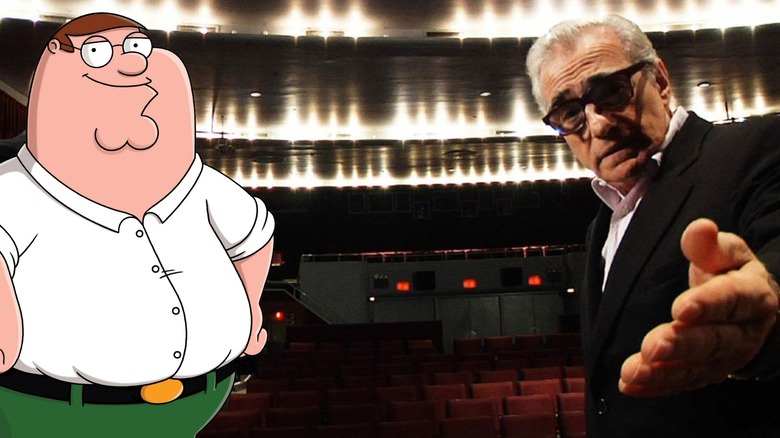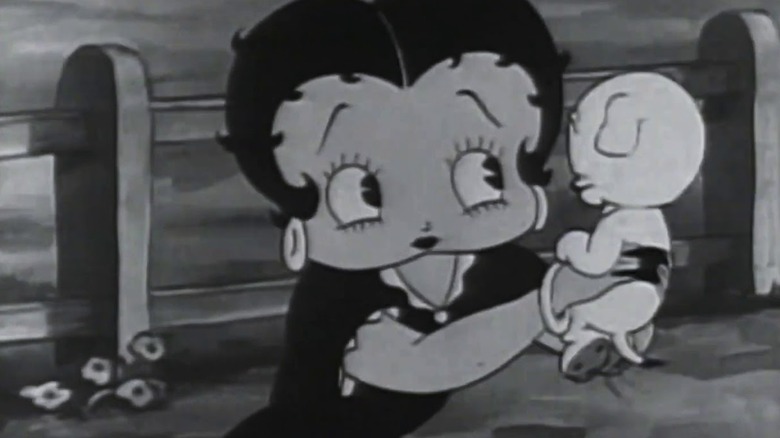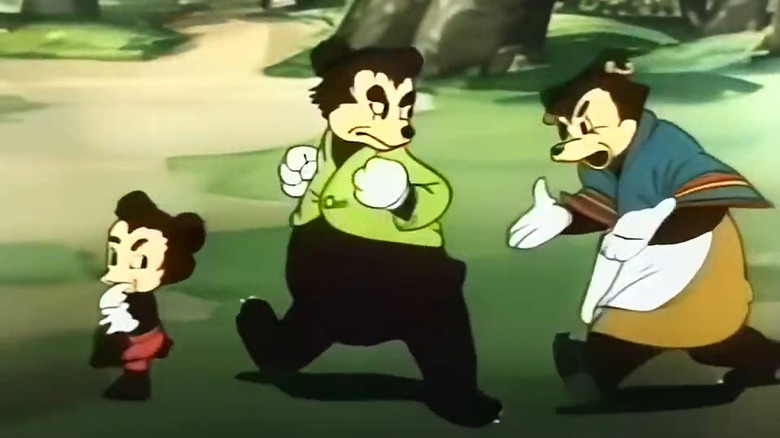Hollywood's Most Unlikely Duo Is Teaming Up To Save Classic Cartoons From Destruction
Martin Scorsese's non-profit Film Foundation was first founded in 1990 as a means to restore and archive films that stood on the brink of being lost. Scorsese, one of the world's preeminent cineastes, was aghast to learn that only about 10% of the films made before 1929 still survive and that more than half of the films made before 1950 were lost forever. The Film Foundation is run by a consortium of famous filmmakers who raise money for extensive restoration efforts. To date, the Foundation has restored over 1,000 movies. Many of the films can be watched online on the Fest Foundation's website. The Foundation also provides educational materials for teachers who might want to show some of these movies to their students. Scorsese wants to make sure that audiences have a chance to see some of the greatest films of all time.
His efforts expanded in 2007 when the director founded the World Cinema Project, which sought to restore and exhibit international films specifically. Several of the films rescued by the World Cinema Project are available on Blu-ray via the Criterion Collection. As of this writing, the WCP is overseeing the restoration of a 1967 Algeria film called "The Winds of Aures" and a 1985 film called "Faces of Women" from Côte d'Ivoire.
In a recent press release, Scorsese has announced that his efforts to restore and exhibit obscure and lost cinema will expand even further. The Film Foundation will team up with the Seth MacFarlane Foundation to present "a curated selection of historically significant animated shorts from the 1920s–1940s." Yes, the director of "Silence" and the director of "Ted 2" are collaborating to save animation.
The animation celebration will be presented on Turner Classic Movies on April 20, 2024, beginning at 6:30 p.m.
Max Fleischer
One might not think that Scorsese and MacFarlane would be a good match, but both men have a deep appreciation for animation, and both want to make sure classic cartoons remain available to the public. MacFarlane, the press release points out, studied animation at the Rhode Island School of Design, and is responsible for "Family Guy," one of the longest-running animated shows in history. MacFarlane is also an open lover of cinema, enthused about old classics and pop entertainment with equal fervor.
In particular, MacFarlane is a fan of Max and Dave Fleischer, among the more prominent animators of the 1920s and 1930s. Fleischer Studios conducted notable (and sadly lost) animation experiments in the late '10s, moving into more commercial fare in the early '20s. The Fleichers oversaw the production of Koko the Clown, Betty Boop, Popeye, and Superman cartoons. Many may be familiar with Max Fleischer's Betty Boop cartoon/Cab Calloway music video "Minnie the Moocher" from 1932, or perhaps "St. James Infirmary Blues" from 1933. MacFarlane has also long been an aficionado of jazz and the American Songbook, and a lot of the Fleischer filmography ties directly into that era.
About the collaboration, Scorsese said:
"I'm so grateful to Seth MacFarlane for his enthusiasm and his support on these restorations. [...] What an astonishing experience, to see these remarkable pictures that I experienced for the first time as a child brought back to their full glory. Imagine the reactions of children today! Because the films now seem as fresh as they did when they were newly made."
MacFarlane added:
"The work Martin Scorsese and his Film Foundation have been doing is essential cinematic preservation. I'm honored to partner with them in restoring their first-ever collection of storied animation."
Amazing.
George Pal & Terrytoons
All the animation sources have been culled from the meticulous UCLA Film Archive. Seth MacFarlane will be introducing them.
In addition to works by the Fleischers, the presentation will also include a short, "Two-Gun Rusty," from George Pal's stop-motion Puppetoons studios, perhaps best known for their commercial work and Gumby cartoons. Also on the lineup is "The Three Bears" from Terrytoons, the studio behind Mighty Mouse, Heckle & Jeckle, and hundreds of other shorts from the '20s through the '60s.
The lineup's titles include:
- "Koko's Tattoo" (1928)
- "Little Nobody" (1935)
- "The Little Stranger" (1936)
- "Greedy Humpty Dumpty" (1936)
- "Peeping Penguins" (1937)
- "The Fresh Vegetable Mystery" (1939)
- "So Does an Automobile" (1939)
- "The Three Bears" (1939)
- "Two-Gun Rusty" (1944)
This animation festival is a direct result of the kerfuffle over at Turner Classic Movies back in June of 2023. It was announced at the time that the channel's leadership was all being laid off, making TCM's future uncertain. There was a public outcry, and many famous filmmakers spoke out against the decision. Warner Bros. head David Zaslav was forced to rehire VP Charles Tabesh, and he hired Scorsese, Steven Spielberg, and Paul Thomas Anderson as guest curators for the network, a gig that will last until at least June of 2024.
One can be certain that the above selection of specially restored animation shorts is part of Scorsese's presence at TCM. It's also a great way to highlight the cinematic pioneering that animators in the 1920s and 1930s underwent in a need to bring new visuals into the medium. There is a freewheeling, unmannered affect to the above shorts, and viewers may get the sense that the makers were inventing the medium as they went ... which is exactly what was happening.


